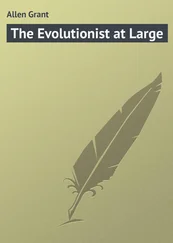Grant Allen - Strange Stories
Здесь есть возможность читать онлайн «Grant Allen - Strange Stories» — ознакомительный отрывок электронной книги совершенно бесплатно, а после прочтения отрывка купить полную версию. В некоторых случаях можно слушать аудио, скачать через торрент в формате fb2 и присутствует краткое содержание. Жанр: foreign_prose, на английском языке. Описание произведения, (предисловие) а так же отзывы посетителей доступны на портале библиотеки ЛибКат.
- Название:Strange Stories
- Автор:
- Жанр:
- Год:неизвестен
- ISBN:нет данных
- Рейтинг книги:3 / 5. Голосов: 1
-
Избранное:Добавить в избранное
- Отзывы:
-
Ваша оценка:
- 60
- 1
- 2
- 3
- 4
- 5
Strange Stories: краткое содержание, описание и аннотация
Предлагаем к чтению аннотацию, описание, краткое содержание или предисловие (зависит от того, что написал сам автор книги «Strange Stories»). Если вы не нашли необходимую информацию о книге — напишите в комментариях, мы постараемся отыскать её.
Strange Stories — читать онлайн ознакомительный отрывок
Ниже представлен текст книги, разбитый по страницам. Система сохранения места последней прочитанной страницы, позволяет с удобством читать онлайн бесплатно книгу «Strange Stories», без необходимости каждый раз заново искать на чём Вы остановились. Поставьте закладку, и сможете в любой момент перейти на страницу, на которой закончили чтение.
Интервал:
Закладка:
He composed himself quietly in the arm-chair, and glanced rapidly at the will through the meaningless preliminaries till he came to the significant clauses. These he read more carefully. "All my estate in the county of Dorset, and the messuage or tenement known as Redlands, in the parish of Lode, in the county of Devon, to my dear nephew, Arthur Dene," he said to himself slowly: "Oh, this will never do." "And I give and bequeath to my said nephew, Arthur Dene, the sum of ten thousand pounds, three per cent. consolidated annuities, now standing in my name." – "Oh this is atrocious, quite atrocious! What's this?" "And I give and bequeath to my dear nephew, Walter Dene, the residue of my personal estate" – "and so forth. Oh no. That's quite sufficient. This must be rectified. The residuary legatee would only come in for a few hundreds or so. It's quite preposterous. The vicar was always an ill-tempered, cantankerous, unaccountable person, but I wonder he has the face to sit opposite me at dinner after that."
He hummed an air from Schubert, and sat a moment looking thoughtfully at the will. Then he said to himself quietly, "The simplest thing to do would be merely to scrape out or take out with chemicals the name Arthur, substituting the name Walter, and vice versâ . That's a very small matter; a man who draws as well as I do ought to be able easily to imitate a copying clerk's engrossing hand. But it would be madness to attempt it now and here; I want a little practice first. At the same time, I mustn't keep the will out a moment longer than is necessary; my uncle may return by some accident before I expect him; and the true philosophy of life consists in invariably minimizing the adverse chances. This will was evidently drawn up by Watson and Blenkiron, of Chancery Lane. I'll write to-morrow and get them to draw up a will for me, leaving all I possess to Arthur. The same clerk is pretty sure to engross it, and that'll give me a model for the two names on which I can do a little preliminary practice. Besides, I can try the stuff Wharton told me about, for making ink fade on the same parchment. That will be killing two birds with one stone, certainly. And now if I don't make haste I shan't have time to write my sermon."
He replaced the will calmly in the desk, fastened the lock again with a delicate twirl of the pick, and sat down in his arm-chair to compose his discourse for to-morrow's evensong. "It's not a bad bit of rhetoric," he said to himself as he read it over for correction, "but I'm not sure that I haven't plagiarized a little too freely from Montaigne and dear old Burton. What a pity it must be thrown away upon a Churnside congregation! Not a soul in the whole place will appreciate a word of it, except Christina. Well, well, that alone is enough reward for any man." And he knocked off his ash pensively into the Japanese ash-pan.
During the course of the next week Walter practised diligently the art of imitating handwriting. He got his will drawn up and engrossed at Watson and Blenkiron's (without signing it, bien entendu ); and he spent many solitary hours in writing the two names "Walter" and "Arthur" on the spare end of parchment, after the manner of the engrossing clerk. He also tested the stuff for making the ink fade to his own perfect satisfaction. And on the next occasion when his uncle was safely off the premises for three hours, he took the will once more deliberately from the desk, removed the obnoxious letters with scrupulous care, and wrote in his own name in place of Arthur's, so that even the engrossing clerk himself would hardly have known the difference. "There," he said to himself approvingly, as he took down quiet old George Herbert from the shelf and sat down to enjoy an hour's smoke after the business was over, "that's one good deed well done, anyhow. I have the calm satisfaction of a clear conscience. The vicar's proposed arrangement was really most unfair; I have substituted for it what Aristotle would have rightly called true distributive justice. For though I've left all the property to myself, by the unfortunate necessity of the case, of course I won't take it all. I'll be juster than the vicar. Arthur shall have his fair share, which is more, I believe, than he'd have done for me; but I hate squalid money-grubbing. If brothers can't be generous and brotherly to one another, what a wretched, sordid little life this of ours would really be!"
Next Sunday morning the vicar preached, and Walter sat looking up at him reflectively from his place in the chancel. A beautiful clear-cut face, the curate's, and seen to great advantage from the doctor's pew, set off by the white surplice, and upturned in quiet meditation towards the elder priest in the pulpit. Walter was revolving many things in his mind, and most of all one adverse chance which he could not just then see his way to minimize. Any day his uncle might take it into his head to read over the will and discover the – ah, well, the rectification. Walter was a man of too much delicacy of feeling even to think of it to himself as a fraud or a forgery. Then, again, the vicar was not a very old man after all; he might live for an indefinite period, and Christina and himself might lose all the best years of their life waiting for a useless person's natural removal. What a pity that threescore was not the utmost limit of human life! For his own part, like the Psalmist, Walter had no desire to outlive his own highest tastes and powers of enjoyment. Ah, well, well, man's prerogative is to better and improve upon nature. If people do not die when they ought, then it becomes clearly necessary for philosophically minded juniors to help them on their way artificially.
It was an ugly necessity, certainly; Walter frankly recognized that fact from the very beginning, and he shrank even from contemplating it; but there was no other way out of the difficulty. The old man had always been a selfish bachelor, with no love for anybody or anything on earth except his books, his coins, his garden, and his dinner; he was growing tired of all except the last; would it not be better for the world at large, on strict utilitarian principles, that he should go at once? True, such steps are usually to be deprecated; but the wise man is a law unto himself, and instead of laying down the wooden, hard-and-fast lines that make conventional morality so much a rule of thumb, he judges every individual case on its own particular merits. Here was Christina's happiness and his own on the one hand, with many collateral advantages to other people, set in the scale against the feeble remnant of a selfish old man's days on the other. Walter Dene had a constitutional horror of taking life in any form, and especially of shedding blood; but he flattered himself that if anything of the sort became clearly necessary, he was not the man to shrink from taking the needful measures to ensure it, at any sacrifice of personal comfort.
All through the next week Walter turned over the subject in his own mind; and the more he thought about it, the more the plan gained in definiteness and consistency as detail after detail suggested itself to him. First he thought of poison. That was the cleanest and neatest way of managing the thing, he considered; and it involved the least unpleasant consequences. To stick a knife or shoot a bullet into any sentient creature was a horrid and revolting act; to put a little tasteless powder into a cup of coffee and let a man sleep off his life quietly was really nothing more than helping him involuntarily to a delightful euthanasia. "I wish any one would do as much for me at his age, without telling me about it," Walter said to himself seriously. But then the chances of detection would be much increased by using poison, and Walter felt it an imperative duty to do nothing which would expose Christina to the shock of a discovery. She would not see the matter in the same practical light as he did; women never do; their morality is purely conventional and a wise man will do nothing on earth to shake it. You cannot buy poison without the risk of exciting question. There remained, then, only shooting or stabbing. But shooting makes an awkward noise, and attracts attention at the moment; so the one thing possible was a knife, unpleasant as that conclusion seemed to all his more delicate feelings.
Читать дальшеИнтервал:
Закладка:
Похожие книги на «Strange Stories»
Представляем Вашему вниманию похожие книги на «Strange Stories» списком для выбора. Мы отобрали схожую по названию и смыслу литературу в надежде предоставить читателям больше вариантов отыскать новые, интересные, ещё непрочитанные произведения.
Обсуждение, отзывы о книге «Strange Stories» и просто собственные мнения читателей. Оставьте ваши комментарии, напишите, что Вы думаете о произведении, его смысле или главных героях. Укажите что конкретно понравилось, а что нет, и почему Вы так считаете.












